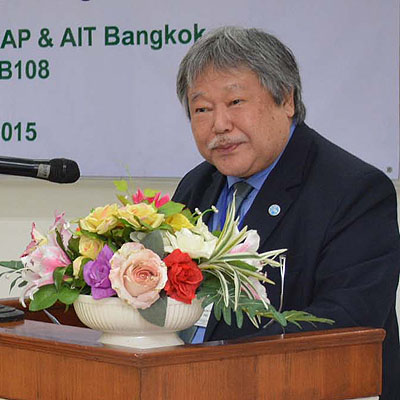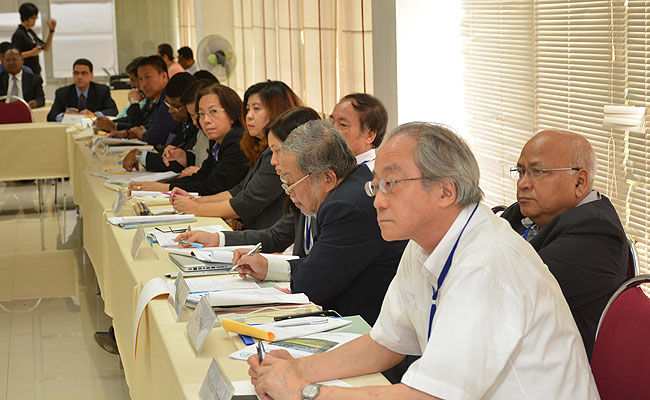 Agricultural production in urban and peri-urban areas of Asia could help strengthen the future of food security and nutrition for the region’s growing urban populations, a regional meeting co-organized by FAO and the Asian Institute of Technology heard this week.
Agricultural production in urban and peri-urban areas of Asia could help strengthen the future of food security and nutrition for the region’s growing urban populations, a regional meeting co-organized by FAO and the Asian Institute of Technology heard this week.
The Regional Consultation on “Strengthening Food and Nutrition Security of the Urban People through Urban and Peri-Urban Agriculture” on 14-15 July 2015 was jointly organized by the Food and Agriculture Organization (FAO) Regional Office for Asia and the Pacific (FAO-RAP) and the Asian Institute of Technology, with support from the AIT
Disaster Preparedness, Mitigation and Management (DPMM) program.
Mr. Hiroyuki Konuma, Assistant Director-General and Regional Representative, FAO-RAP, delivered the opening address on day one. Prof. Sivanappan Kumar, Vice President for Academic Affairs, AIT, welcomed the international participants and Prof. Jayant Kumar Routray, Co-organizer of the Regional Consultation, introduced the program and
objectives of the gathering hosted at AIT.
Government representatives, scientists and technical experts from 17 countries in Asia shared their knowledge and case study experiences, and identified and agreed on priority actions and policy options.
“Urbanization in Asia and the Pacific is happening faster than predicted,” said Konuma. “Fifty percent of the world’s population now live in cities, and for Asia and the Pacific that figure could rise to around 63 percent by 2050. This shift will result in changes to living
conditions and consumption patterns.”
“By 2025 many countries in Asia-Pacific might be considered ‘middle income’ and it’s predicted that the region’s middle income population will grow three-fold by 2020 and six-fold by 2030, led largely by the most populous countries China, India and Indonesia,” Konuma said. “As people grow richer, this will lead to increased demand for higher
protein foods and fruits and vegetables as well as for quality and safety of foods.”
Urban and peri-urban agriculture could help meet this demand Konuma said, but it would need to be approached carefully. “If we plan well towards a ‘green city’ approach we may be able to manage this but we need to carefully consider waste management, transport and supplies issues,” he added.
The regional consultation heard that several countries managed to achieve remarkable success and their good results need to be replicated in other countries, where possible. Urban and peri-urban agriculture can help significantly reduce transport costs and post-harvest losses as the food is produced so much closer to market, experts said.
Delegates to the consultation attended from Bangladesh, Bhutan, China, Cambodia, India, Indonesia, Japan (Embassy, Bangkok), Lao PDR, Mongolia, Myanmar, Nepal, Pakistan, Philippines, Singapore, Sri Lanka, Vietnam, Malaysia and Thailand.

